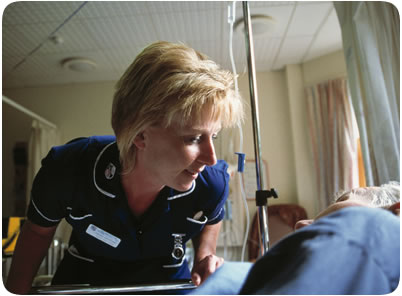
© SciencePhoto
The patient, you and their family should have an in depth assessment of needs. These needs can be physical, social, psychological and spiritual.
The following are physical needs for the patient
- Oral and mouth care. To make the person comfortable if they are not drinking well.
- Nutrition. To monitor basic nutritional needs even if the person is not eating very much.
- Hygiene. For comfort and dignity.
- Pain relief. This can be given in a variety of ways even if the person is unable to take tablets. Drugs can be given in liquid form, as skin patches, via injection or intravenously using a syringe pump to give continual pain relief.
- Bowel and bladder care. If the person is taking high levels of pain medication they will be likely to develop constipation. Treatments and medications can be given for comfort. In some instances they may develop bladder retention (when the person cannot pass urine) and would require a catheter.
- Positioning This is for comfort and to allow the person to be active if they are able but to rest when they cannot participate. Skin can breakdown if the person is bedridden for long periods. They may require a special mattress on their bed.
In some hospitals a single room may be available to allow privacy for the patient and carers. Ask if the ward has this facility.